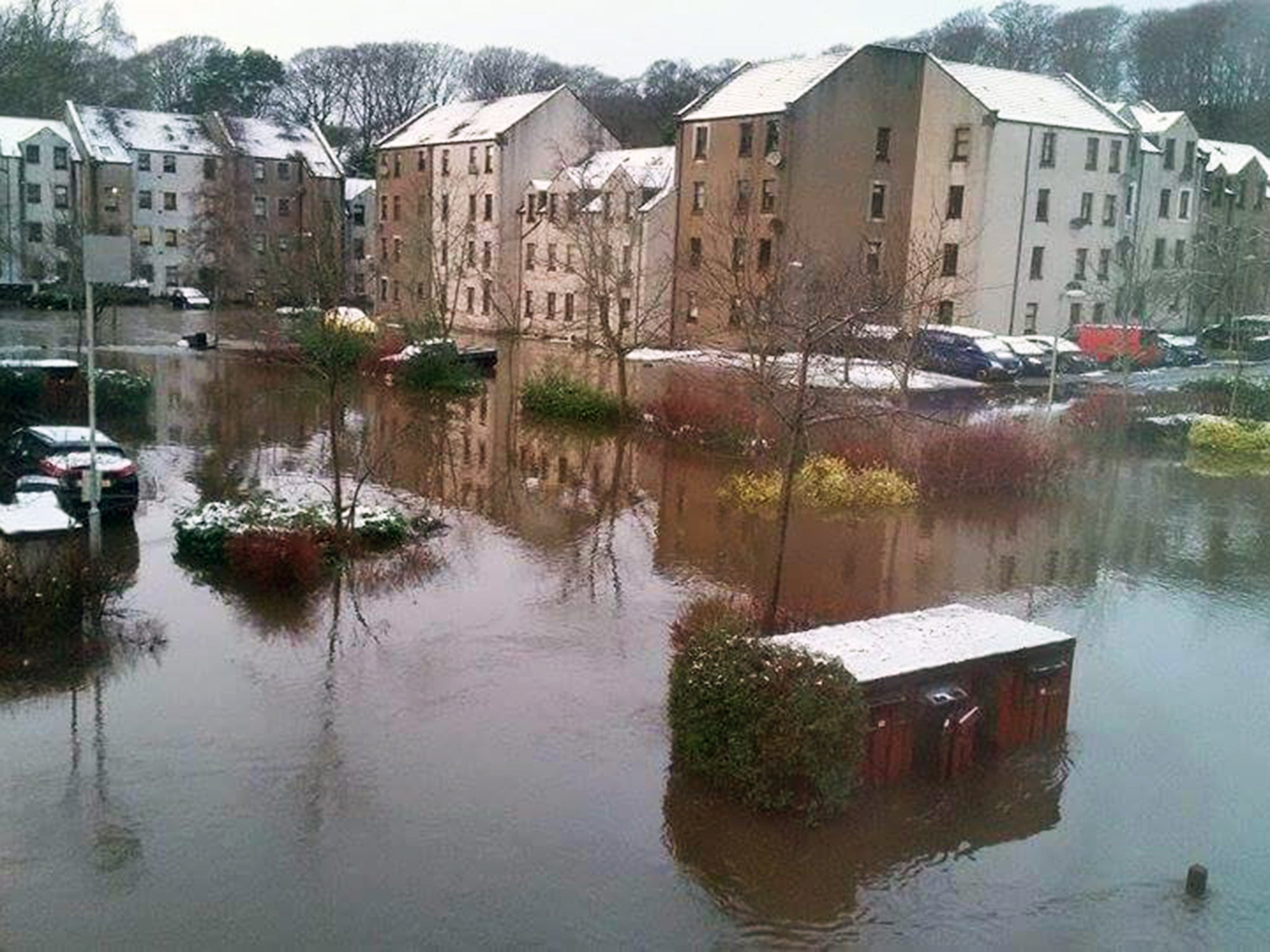Scotland flooding: Rivers reach highest level for almost half a century after unprecedented rainfall
Police declare 'major incident' after River Don and River Ythan burst their banks

Your support helps us to tell the story
From reproductive rights to climate change to Big Tech, The Independent is on the ground when the story is developing. Whether it's investigating the financials of Elon Musk's pro-Trump PAC or producing our latest documentary, 'The A Word', which shines a light on the American women fighting for reproductive rights, we know how important it is to parse out the facts from the messaging.
At such a critical moment in US history, we need reporters on the ground. Your donation allows us to keep sending journalists to speak to both sides of the story.
The Independent is trusted by Americans across the entire political spectrum. And unlike many other quality news outlets, we choose not to lock Americans out of our reporting and analysis with paywalls. We believe quality journalism should be available to everyone, paid for by those who can afford it.
Your support makes all the difference.Unprecedented rainfall in the north east of Scotland has resulted in rivers reaching their highest level for almost half a century, leaving several towns partially underwater and forcing the evacuation of more than 50 homes as emergency services struggled to cope.
Residents of Inverurie, Port Elphinstone and Ellon in Aberdeenshire had to be evacuated by coastguards in the early hours of 8 January after the River Don and the River Ythan burst their banks and sent floodwaters racing down the streets, as a “major incident” was declared by police.
Nicola Sturgeon will visit the flood-hit communities of Aberdeenshire on 9 January, to set out how Scotland will spend its share of UK emergency funding to cope with the devastation left by weeks of extreme weather, as opposition parties accused ministers of dithering over where the money should go.
Many of those evacuated from their homes after the latest round of flooding were forced to sleep on the floors of nearby pubs or in hotel reception areas. Around 40 people stayed at the Strathburn Hotel in Inverurie free of charge, including local resident Steve Russell, who was forced to evacuate the house he shares with his partner and dog.
“The walls themselves are destroyed, the floors are destroyed, the larger items of furniture that we could not move,” he told the BBC. “The furniture is now probably destroyed and all that is really, really hard to take, particularly as this is our first house together…you think you can make preparations but they don’t always work.”
The north east of Scotland has endured a miserable start to the year, which began when Storm Frank flooded villages around the River Dee. At its peak late on 7 January, the River Don reached 18ft, the highest level recorded in 45 years, while at 14ft the River Ythan broke the previous record set in 1983.
Flood-affected companies and homeowners across Scotland are counting the cost of the succession of storms, with business services provider PwC predicting that the total setback to the Scottish economy could already be as high as £700m. Travel disruption is continuing, with busy roads closed and trains south from Aberdeen cancelled.
As the floodwaters began to recede, revealing the extent of the damage, Ms Sturgeon faced growing pressure from opposition parties at Holyrood to set out how she planned to spend Scotland’s share of the UK’s £50m emergency fund amid accusations that ministers had been “glued to their seats” during the crisis.
“This is an ever-changing emergency situation that requires urgent attention right now, and people here are wondering when the Scottish Government is going to sit up and take notice,” said Alison McInnes, Scottish Liberal Democrat MSP for North East Scotland.
After chairing a meeting of the Scottish Government’s resilience committee on the floods, the First Minister acknowledged the “devastating impact” that the “unprecedented” weather had had on some communities. Praising the response from the emergency services, she said she would outline plans for further financial assistance on 9 January.
Earlier, Ms Sturgeon rejected calls from Labour for a full review of Scotland’s flood defences, arguing that work had already been scheduled and it was better to get on with it than hold a further review.
Although a Met Office amber warning for heavy rain expired on 8 January, it was rapidly replaced with a yellow warning for snow and ice for much of Scotland, Northern Ireland, north west and north east England. Snow fell in Dumfries and Galloway and the Borders, where motorists were urged to exercise “extreme caution” in the freezing conditions.
Join our commenting forum
Join thought-provoking conversations, follow other Independent readers and see their replies
Comments